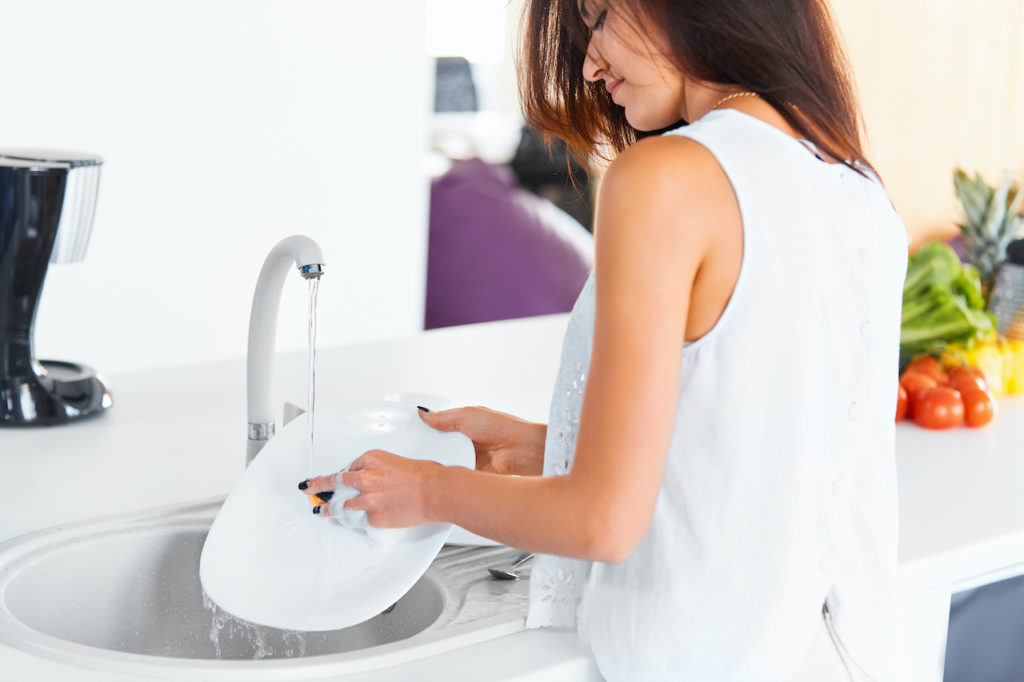
今日のフレーズ
I’ll do the washing up.
(食器洗いするよ。)
やり取りイメージ
------ Dinner ------
------(夕食)------
A : Thank you. Dinner was delicious.
(ありがとう。夕食美味しかったよ。)
B : I’m glad you liked it.
(気に入ったみたいで嬉しいよ。)
A : As you cooked dinner, I’ll do the washing up.
(夕食作ってくれたから、私が食器洗うよ。)
〜 Tea Break 〜
あなたは食事を作ることが多いですか?それとも食器洗いを含めて片付ける方が多いですか?
両方やっている方、もしくは両方ともやっていない方、誰かと分担してやっている方、状況に合わせて様々かと思います。
さて、今日のフレーズのポイントは「do the washing-up」です。
「do the washing-up」: 食器を洗う、食後の皿洗いをする
「washing-up」【名詞】: 皿洗い、食器洗い、汚れた食器
英英辞典でも「washing-up」の意味を調べてみましょう。
the act of cleaning plates, pans, glasses, knives, forks, etc. after a meal, or the objects needing to be washed:
You do the washing-up and I'll do the drying.
(食器洗って、私が拭くから。)
There's an enormous pile of washing-up in the sink.
(シンクに食器がうず高く積まれている。)参照: Cambridge Dictinary
やはり、「食器洗い」と「汚れた食器」の両方の意味があるんですね。
ここで食器を洗うは「do the dishes」ではないかと思われたかもしれません。
「do the dishes」も「do the washing-up」も「食器を洗う」で同じ意味の言葉です。
「do the dishes」はアメリカ英語で、「do the washing-up」がイギリス英語なんです。
イギリス人にも確認したところ、
I’ve never used the phrase doing the dishes but I’ve heard of the phrase.
(「do the dishes」という言葉があるのは知っているが、今まで使ったことがない。)
と言っていました。
イギリスでは「食器を洗う」=「do the washing-up」なんですね。
ちなみに、未来形で「自分が食器を洗うよ。」と言いたいときは今日のフレーズの「I'll do the washing-up.」になりますが、今現在「食器を洗っている。」と言いたいときは、「I'm doing the washing-up.」になります。
ということで、あらためて今日のフレーズは、
I’ll do the washing up.
(食器洗いするよ。)
でした。
ではまた明日のフレーズでお会いしましょう!